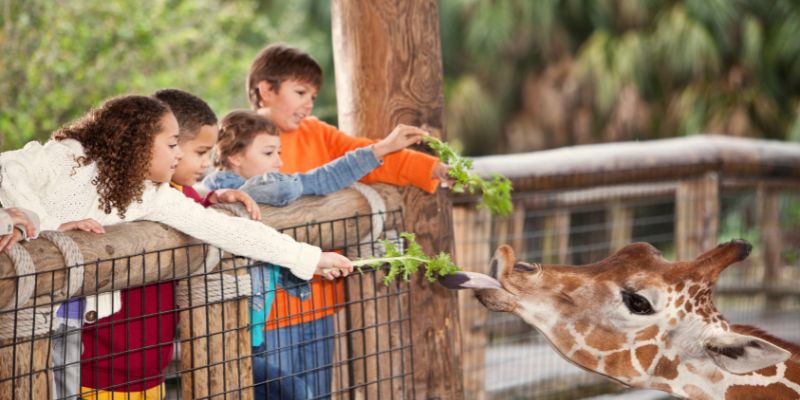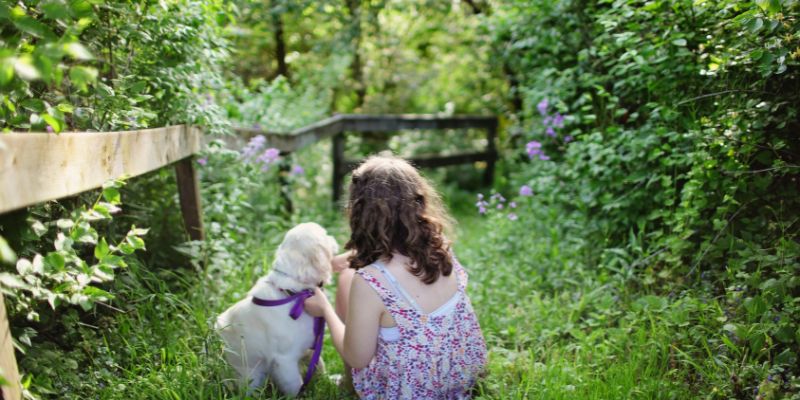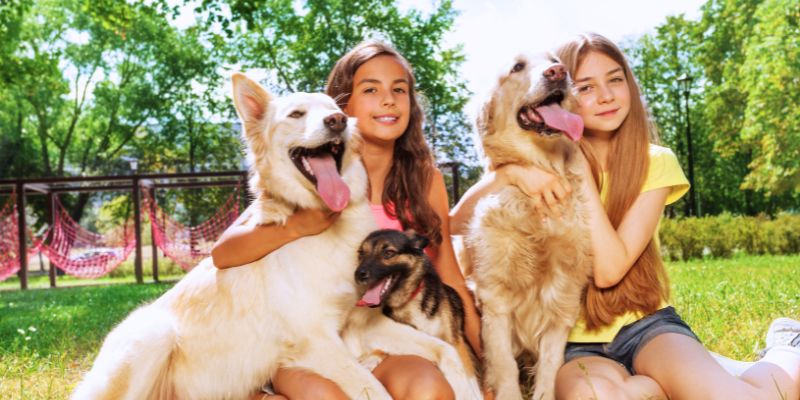Animal Conservation Heroes: Teaching Children About Wildlife Protection Through Petting Zoo Experiences
In a world where wildlife faces unprecedented challenges, the future of conservation lies in the hands of today's children. At Swara Petting Zoo, we believe that every child who gently pets a rabbit, feeds a goat, or learns about animal care has the potential to become a conservation hero. Through meaningful animal interactions, we're not just creating fun memories – we're nurturing the next generation of environmental stewards.
The Conservation Crisis: Why Children's Involvement Matters
Global Wildlife Challenges
Our planet's wildlife faces serious threats:
- Habitat Loss: 75% of land environments severely altered by human activities
- Climate Change: Affecting animal migration patterns and breeding cycles
- Pollution: Impacting both terrestrial and marine ecosystems
- Species Extinction: Current extinction rate 1,000 times higher than natural rate
The Power of Early Education
Research shows that environmental values formed in childhood persist throughout life. Children who develop positive relationships with animals are more likely to:
- Support conservation efforts as adults
- Make environmentally conscious choices
- Pursue careers in environmental fields
- Advocate for wildlife protection policies
Creating Emotional Connections
The "Bambi Effect": Children who form emotional bonds with animals become passionate advocates for their protection. This emotional connection is far more powerful than abstract environmental education alone.
How Petting Zoo Experiences Build Conservation Awareness
Direct Animal Relationships
Personal Connections Create Caring: When children interact with our animals, they develop personal relationships that extend beyond the visit:
- Bella the Rabbit becomes a representative of all rabbits in the wild
- Majid the Goat helps children understand the needs of all goats globally
- Noor the Pony creates empathy for all equines facing challenges
Understanding Animal Needs
Basic Care Translates to Conservation: Learning about our animals' daily needs helps children understand what wild animals require:
- Food and Water: Understanding habitat preservation importance
- Shelter: Recognizing the need for protected spaces
- Safety: Appreciating the threats wild animals face
- Social Needs: Understanding family structures and community importance
Witnessing Animal Intelligence and Emotion
Recognizing Sentience: Through interactions, children discover that animals:
- Have distinct personalities and preferences
- Experience emotions like joy, fear, and contentment
- Form relationships with humans and other animals
- Demonstrate problem-solving abilities and intelligence
Age-Appropriate Conservation Education
Early Childhood (Ages 3-5): Building Empathy Foundations
Core Concepts:
- Animals are living beings with needs and feelings
- Gentle treatment is important for animal wellbeing
- Different animals have different needs and homes
- We can help animals by being kind and careful
Activities and Lessons:
"Animal Feelings" Discussions:
- Observing when animals seem happy or nervous
- Talking about what makes animals comfortable
- Practicing gentle touches and quiet voices
- Learning to recognize animal body language
"Animal Homes" Exploration:
- Discussing where our petting zoo animals originally lived
- Comparing farm animals to their wild cousins
- Simple habitat discussions (forest, grassland, desert)
- Understanding why animals need safe spaces
"Helping Animals" Actions:
- Participating in gentle animal care
- Learning proper feeding techniques
- Understanding why we don't litter (animals might eat it)
- Simple recycling concepts to help animal homes
Elementary Age (Ages 6-10): Expanding Understanding
Advanced Concepts:
- Habitat destruction and its impact on animals
- Endangered species and why some animals need extra help
- Human impact on animal populations
- Conservation success stories that inspire hope
Educational Activities:
"Wild Cousins" Comparisons:
- Comparing our domestic goats to wild mountain goats
- Discussing how our chickens relate to wild birds
- Understanding the difference between domestic and wild animals
- Learning about animal adaptation to different environments
"Habitat Heroes" Projects:
- Creating habitat dioramas for different animals
- Discussing what animals need in their natural homes
- Learning about protected areas and national parks
- Understanding how habitat loss affects animal families
"Conservation Champions" Stories:
- Learning about people who help save animals
- Discussing local conservation efforts in the UAE
- Understanding how zoos and sanctuaries help animals
- Exploring careers in animal conservation
Middle School (Ages 11-14): Complex Conservation Concepts
Sophisticated Understanding:
- Ecosystem interconnections and food webs
- Human-wildlife conflict an potential solutions
- Conservation strategies and their effectiveness
- Global cooperation in wildlife protection
Advanced Projects:
"Ecosystem Detectives" Research:
- Investigating how removing one species affects others
- Understanding predator-prey relationships
- Learning about keystone species and their importance
- Exploring the concept of biodiversity
"Conservation Technology" Exploration:
- Learning about GPS tracking of wild animals
- Understanding how drones help monitor wildlife
- Exploring genetic rescue programs
- Discussing the role of breeding programs in conservation
"Policy and Advocacy" Understanding:
- Learning about wildlife protection laws
- Understanding international conservation agreements
- Exploring the role of NGOs in conservation
- Discussing how individuals can influence policy
UAE-Specific Conservation Education
Local Wildlife Awareness
Native Species Focus:
- Arabian Oryx: UAE's conservation success story
- Houbara Bustard: Traditional hunting and modern conservation
- Sea Turtles: Marine conservation efforts
- Falcons: Cultural significance and protection programs
Regional Conservation Efforts
UAE Leadership in Conservation:
- Sheikh Zayed's Legacy: Environmental vision and implementation
- Protected Areas: National parks and reserves
- Breeding Programs: Success with endangered species
- International Cooperation: Supporting global conservation efforts
Cultural Connections
Traditional Relationships with Animals:
- Bedouin Heritage: Sustainable animal husbandry practices
- Falconry Traditions: Balancing culture with conservation
- Marine Heritage: Traditional fishing and modern sustainability
- Desert Adaptation: Learning from traditional knowledge
Practical Conservation Activities
During Petting Zoo Visits
"Conservation Connections" Discussions:
Linking Domestic to Wild:
- "Our goats are related to wild goats in the mountains"
- "Chickens help us understand how to protect wild birds"
- "Caring for our animals teaches us about caring for all animals"
- "What we learn here helps us help animals everywhere"
"Habitat Heroes" Activities:
Understanding Animal Needs:
- Observing how much space animals need to be comfortable
- Learning about proper nutrition and its importance
- Understanding the role of veterinary care in animal health
- Recognizing signs of animal stress and contentment
"Future Conservationists" Inspiration:
Career Exploration:
- Meeting animal care professionals
- Learning about different conservation careers
- Understanding the education needed for animal work
- Discussing how children can prepare for conservation careers
Post-Visit Conservation Projects
School-Based Extensions:
"Adopt a Species" Programs:
- Choosing a local endangered species to learn about
- Creating presentations about conservation needs
- Fundraising for conservation organizations
- Writing letters to government officials about protection
"Habitat Restoration" Projects:
- Creating pollinator gardens at school
- Building bird houses and feeding stations
- Organizing beach or park cleanup activities
- Planting native species in school gardens
Family Conservation Activities:
"Conservation at Home" Initiatives:
- Reducing plastic use to protect marine animals
- Creating wildlife-friendly gardens
- Supporting sustainable products
- Participating in citizen science projects
Building Empathy Through Animal Interactions
Emotional Intelligence Development
Understanding Animal Emotions: Through petting zoo interactions, children learn to:
- Read body language in animals and humans
- Respond appropriately to different emotional states
- Show patience when animals are nervous or tired
- Celebrate success when animals trust them
Perspective-Taking Skills
Seeing from Animal Viewpoints:
- "How would you feel if you were a small rabbit surrounded by big people?"
- "What would it be like to be a bird and see the world from above?"
- "How do you think animals feel when their homes are destroyed?"
- "What would you want if you were an animal in need of help?"
Moral Development
Developing Conservation Ethics:
- Understanding that animals have intrinsic value
- Recognizing human responsibility for animal welfare
- Developing a sense of stewardship for the environment
- Learning that individual actions can make a difference
Success Stories: Children Becoming Conservation Heroes
Local Impact Stories
Aisha's Plastic Campaign (Age 8):
After learning about marine animals eating plastic during a petting zoo visit, Aisha started a campaign at her school to reduce single-use plastics. Her efforts led to the installation of water fountains and a school-wide plastic reduction program.
Omar's Bird Sanctuary (Age 11):
Inspired by caring for our chickens, Omar created a bird feeding and nesting area in his family's garden. He documented 15 different bird species visiting and presented his findings to his class, inspiring others to create bird-friendly spaces.
Fatima's Conservation Club (Age 13):
After participating in our advanced conservation program, Fatima founded her school's first environmental club. The club has organized beach cleanups, raised funds for local wildlife protection, and created educational presentations for younger students.
International Inspiration
Global Young Conservationists:
- Greta Thunberg: Started with individual action, inspired global movement
- Autumn Peltier: Young water protector advocating for clean water
- Mari Copeny: "Little Miss Flint" fighting for environmental justice
- Xiuhtezcatl Martinez: Youth climate activist and speaker
Technology and Modern Conservation Education
Digital Tools for Conservation Learning
Virtual Reality Experiences:
- "Walking" through endangered animal habitats
- Experiencing the impact of deforestation firsthand
- Swimming with marine animals to understand ocean threats
- Flying with migratory birds to see their challenges
Apps and Games:
- iNaturalist: Citizen science through species identification
- eBird: Contributing to bird conservation through observation
- Seek: AI-powered species identification for nature exploration
- Conservation Games: Learning through interactive play
Social Media for Good
Youth Conservation Voices:
- Creating content about local wildlife
- Sharing conservation success stories
- Organizing online awareness campaigns
- Connecting with other young conservationists globally
Overcoming Conservation Challenges
Addressing "Doom and Gloom"
Maintaining Hope and Motivation:
- Focus on Success Stories: Highlighting conservation victories
- Emphasize Individual Power: Showing how one person can make a difference
- Celebrate Small Actions: Recognizing every positive step
- Connect to Local Impact: Making conservation personally relevant
Making Conservation Accessible
Inclusive Conservation Education:
- Economic Accessibility: Free and low-cost conservation activities
- Cultural Sensitivity: Respecting different relationships with nature
- Language Accessibility: Materials in multiple languages
- Physical Accessibility: Conservation activities for all abilities
Sustaining Long-Term Engagement
Keeping Conservation Exciting:
- Regular Updates: Sharing ongoing conservation news and successes
- Hands-On Activities: Providing concrete ways to help
- Community Connection: Linking children with other young conservationists
- Recognition Programs: Celebrating conservation achievements
The Role of Families in Conservation Education
Supporting Conservation Values at Home
Family Conservation Practices:
- Modeling Behavior: Demonstrating environmental responsibility
- Nature Experiences: Regular outdoor activities and wildlife observation
- Conservation Conversations: Discussing environmental news and issues
- Sustainable Choices: Making environmentally conscious decisions together
Extending Petting Zoo Learning
Post-Visit Family Activities:
- Nature Documentaries: Watching wildlife films together
- Zoo and Aquarium Visits: Continuing animal education
- Conservation Organization Support: Participating in local efforts
- Outdoor Exploration: Hiking, birdwatching, and nature photography
Measuring Conservation Impact
Assessing Attitude Changes
Pre and Post-Visit Surveys:
- Attitudes toward animals and nature
- Understanding of conservation concepts
- Intention to engage in pro-environmental behaviors
- Empathy levels toward animals
Long-Term Follow-Up
Tracking Conservation Engagement:
- Participation in environmental activities
- Career interest in conservation fields
- Continued learning about wildlife and environment
- Advocacy and leadership in conservation efforts
Community Impact Assessment
Broader Conservation Influence:
- Family behavior changes following child's education
- School program implementation inspired by visits
- Community conservation project initiation
- Policy support influenced by educated youth
Future Conservationists: Career Pathways
Conservation Career Exploration
Diverse Opportunities in Conservation:
- Wildlife Biologist: Studying animal behavior and ecology
- Conservation Veterinarian: Providing medical care for wild animals
- Environmental Educator: Teaching others about conservation
- Park Ranger: Protecting natural areas and wildlife
- Marine Biologist: Studying and protecting ocean life
- Conservation Photographer: Documenting wildlife for protection
- Environmental Lawyer: Using law to protect animals and habitats
- Zookeeper/Animal Curator: Caring for animals in captivity
Educational Pathways
Preparing for Conservation Careers:
- Science Foundation: Strong background in biology and ecology
- Communication Skills: Ability to educate and advocate
- Technology Proficiency: Using modern tools for conservation
- Cultural Competency: Working with diverse communities
- Leadership Development: Inspiring others to take action
Mentorship and Support
Connecting Youth with Professionals:
- Career Day Presentations: Meeting working conservationists
- Internship Opportunities: Hands-on experience in conservation
- Mentorship Programs: Ongoing guidance from professionals
- Scholarship Information: Financial support for conservation education
Global Citizenship Through Conservation
Understanding Interconnectedness
Global Conservation Connections:
- Migratory Species: Animals that connect different countries
- Climate Change: Global impacts requiring international cooperation
- Trade Issues: How consumer choices affect wildlife worldwide
- Cultural Exchange: Learning from different conservation approaches
Developing Global Perspective
International Conservation Awareness:
- Sister City Programs: Connecting with conservation efforts elsewhere
- Pen Pal Programs: Corresponding with young conservationists globally
- Virtual Exchanges: Online connections with international schools
- Global Project Participation: Contributing to worldwide conservation efforts
Conclusion: Every Child a Conservation Hero
The gentle touch of a child's hand on a rabbit's fur, the wonder in their eyes as they feed a goat, the careful way they approach a nervous chicken – these moments are where conservation heroes are born. At Swara Petting Zoo, we witness these transformations daily, as children develop the empathy, knowledge, and passion that will drive them to protect our planet's precious wildlife.
Conservation isn't just about saving animals – it's about preserving the wonder, beauty, and interconnectedness of our natural world for future generations. When we teach children to care for animals, we're teaching them to care for our planet. When we show them the intelligence and emotion in animal eyes, we're showing them the value of all life. When we inspire them to take action, we're empowering them to change the world.
Every child who visits our petting zoo has the potential to become a conservation hero. Some may become wildlife biologists, others environmental educators, and still others may simply make daily choices that protect animals and their habitats. All of these contributions matter, and all of them start with a single moment of connection between a child and an animal.
The future of our planet's wildlife depends on the children we inspire today. Through meaningful animal interactions, comprehensive education, and ongoing support, we're not just creating memories – we're creating the conservationists who will protect our world's precious animals for generations to come.
Join us in nurturing the next generation of conservation heroes. Because when children fall in love with animals, they fall in love with protecting them – and that love can change the world.
Ready to inspire the next generation of conservation heroes? Our specialized conservation education programs combine animal interactions with environmental awareness. Contact us at +971 50 123 4567 to learn how we can help develop young conservationists in your community!



